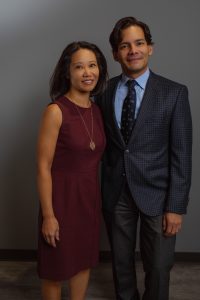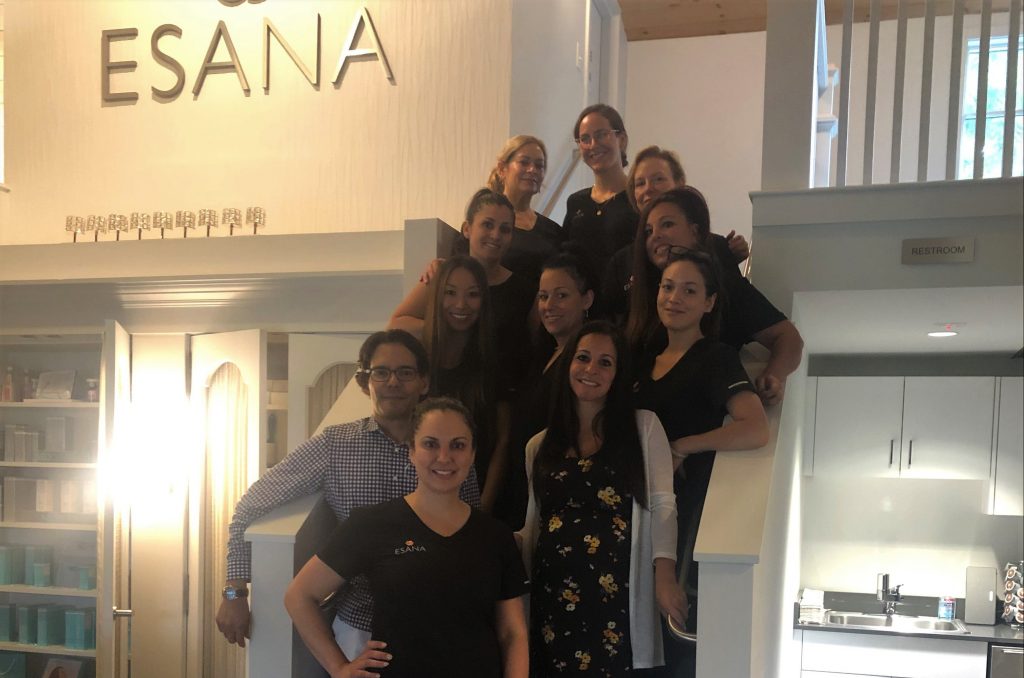It’s idealistic to believe that beauty comes entirely from within, that you can just wake up every morning and convince yourself you’re beautiful. But we at CT Voice know firsthand that it’s not always so simple–that for LGBT people especially, heteronormative beauty standards can often warp our self-image. Sometimes it’s near impossible to look in the mirror and ask yourself: What does beauty mean to ME?
ESANA Plastic Surgery Center and Medical Spa is here to guide you closer to your beauty goals. Founded and led by Deborah Pan MD and Javier Davila MD, the center creates a customized plan for each of its clients, focusing on developing a relationship built on trust and candor. Whether it’s plastic cosmetic surgery or non-invasive procedures such as laser therapy, ESANA hopes to go beyond the surface. They want to know, what is it that you, as an individual, truly need and want?
We spoke with Dr. Javier Davila, Board Certified Plastic Surgeon, about self-image, trends, and LGBT business ownership. ESANA has offices in New Haven and Guilford–schedule a consultation anytime!
CT VOICE: What brought you to the world of beauty and cosmetic surgery? Where do you seek inspiration for your work at ESANA?
DAVILA: The first year of my surgery training was what brought me to the world of beauty. I’d always had an appreciation for beauty, but I never thought it was compatible with my training as a medical surgeon. It wasn’t until I saw my first breast procedure and my first face-lift that I realized, oh my God, this can make changes and make people happy.
My inspiration actually comes from our patients. They are all different, they all have different things they are self-conscious about. Listening to them really shapes the work that I do at ESANA.
CT VOICE: At ESANA, your clients are encouraged to speak candidly about their self-image, vulnerabilities and beauty aspirations. How do you create an environment in which clients feel comfortable expressing themselves?
DAVILA: The first thing clients need to feel is trust. They need to feel that we’re here to listen to their concerns, that we’re not here to upsell or push procedures onto them that aren’t the right solution. So it’s that initial communication in which I tell my clients about my vision, my goals, and ask them about their concerns—what they’re afraid of, what bothers them. A lot of people will be straightforward, and this opens them up to say, “I don’t want to look overdone. I don’t want to look like so-and-so on TV.” Once we’ve established the trust, our clients become very forthcoming, and then we work with them to figure out what their priorities are.
I will never over-suggest. Sometimes I’m the one who pulls back, because clients think they want to do something that’s more aggressive than what they really need. My job is to ground them, to tell them that sometimes certain procedures aren’t necessary.
CT VOICE: How do you feel about the cultural messaging of cosmetic surgery? Nowadays, the stigma and contempt attached to cosmetic surgery is often countered by a more progressive narrative, one that suggests cosmetic surgery is part of self-care and self-empowerment. Where does ESANA stand on this debate?
DAVILA: This question would’ve had a different answer fifteen years ago, when there was more of a hush-hush about cosmetic surgery, about changing one’s appearance. But social media has broken many of these barriers. More commonly we see patients, especially women, who feel that cosmetic surgery is about empowerment. It’s something they feel they have control over, not something they’re victimized by or they’re obligated to do in order to please people. One of the most common things I hear from patients is, “I’m doing this for myself.”
CT VOICE: In any sector of the beauty industry, there are trends and fads that come and go, and too often we seek to follow trends instead of self-reflecting and learning what works best for us as individuals. Do you encounter fads and trends often at ESANA? How do you move away from trends and bring it back to the individual client’s needs and desires?
DAVILA: Trends definitely affect our clients. We’ll have patients come in because they saw something and thought it was the popular thing. For example, buttock implants—the Brazilian butt augmentation, fat transfers, the large volumes. Or with certain facial procedures they see on TV, or lip augmentations, maybe it’s something that won’t benefit them. These are procedures that has a certain complication rate, and I tell patients to really think about the risks. They’ll come in because something is popular, but they have not been informed by the possible downsides. I have to have a conversation in which I pull my clients away from the fads.
It’s rare that we see someone who wants to do something exaggerated, but when we do, I’ll have to tell them “No” if that’s the appropriate advice. You would be surprised at the gratitude we receive. Oftentimes when I tell people “No,” they will look at me and say, “Thank you for being honest.”
CT VOICE: ESANA has built a strong reputation in Connecticut’s LGBT community. How have you built that rapport with your LGBT clients? What would you like members of the LGBT community to know about ESANA?
DAVILA: Well, Dr. Pan and I founded ESANA in 2006. I started it as an openly gay man, and it was never a secret—this is what it is, this is who I am, and my partner and our entire staff too is very supportive of the LGBT community. Through the years, we have participated in causes such as AIDS Project New Haven and have sponsored New Haven Pride.
Our openness allows our patients to feel welcome the minute they enter ESANA. There is no judgment, no concerns of ever feeling that you’ll ever be discriminated as a member of the LGBT community. They know they’re being treated just as anyone else would.









More Stories
Make It Here, Just As You Are
Queer Joy and Queer Resilience
The Final Word: Embracing Differences